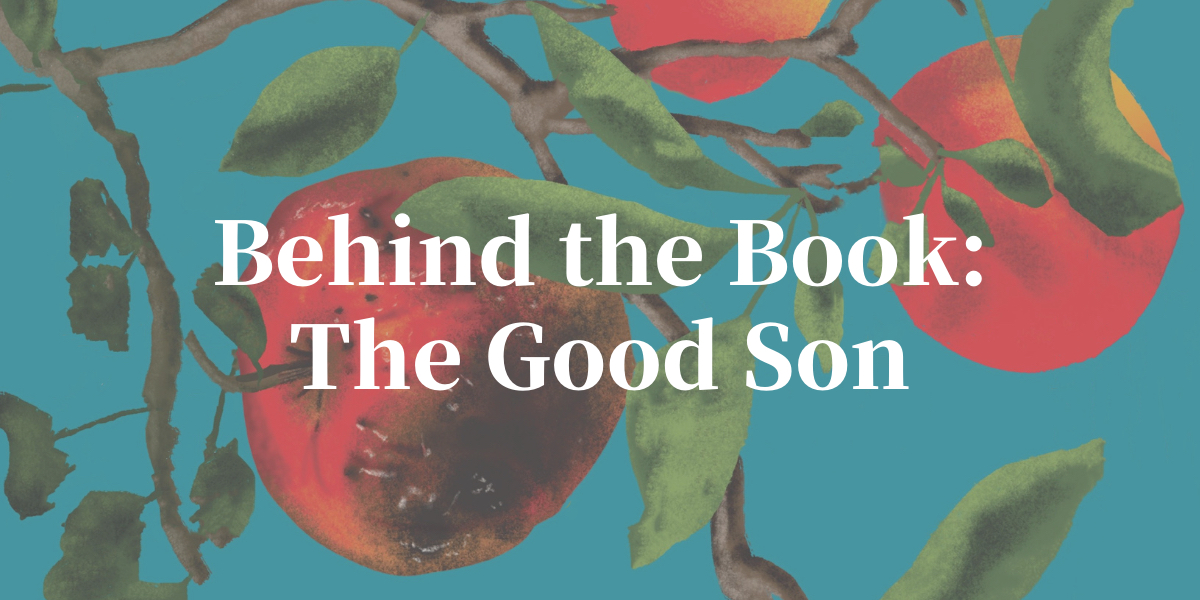A girl is murdered and time is served; but is it enough? Did he even commit the crime? How can he move on? How can his mother? This rich and complex novel is a compelling look into what happens when everything you’ve ever known is turned inside out. Suspense, mystery, and the complexities in life are explored in #1 New York Times and #1 USA Today bestselling author Jacquelyn Mitchard’s The Good Son.
Let’s hear, from Jacquelyn herself, about the inspiration behind the book!
The Good Son was a book I had to fight for the right to write.
Fellow novelists said the premise might not be appealing; even my agent doubted that I could ever make the characters sympathetic. But I knew there was a compelling story in there—because I’d been captivated long ago by a real-life version of it. That real-life version did not contain the myriad twists that would become such an important part of my imagined story. But it comprised the heartbreak of the essential question: Is it worse to lose the one you love most in the world, or to have that beloved person do the worst possible thing?
At first, the answer seems obvious: of course you would never want to lose your best beloved. But, upon reflection, the response isn’t so simple if you consider the crushing weight of horror, guilt and shame that comes with the other option.
Years before I ever wrote this story, I was standing in a coffee line at a big hotel in Chicago where I was speaking at a writers’ conference. The woman in front of me dropped her book; I picked it up and asked if she was attending the conference. No, she said. She told me that she came to stay at this hotel every weekend in order to visit her son, who was in prison not far from here and would be in prison for at least twenty more years. He was just nineteen years old.
Oh, no, I thought. Oh, no, don’t tell me why—this must be very, very bad. But she did tell me—her son had murdered the only girl he’d ever loved while so strung out on drugs that he didn’t even remember the death.
She went on to tell me that one day, when she was in their hometown cemetery, bringing roses to the girl’s grave, the girl’s mother appeared. The boy’s mother was terrified: What would happen? Would the woman shout at her, quite justifiably? Would she hit her? Instead, the two, who’d once been good friends, fell sobbing into each other’s arms. The mother of the lost girl then said the most heart-wrenching thing. “At least,” she told the boy’s mother, “you can still touch him.”
I could not imagine the grief of the mother visiting her daughter’s grave. I still can’t. I could not really comprehend the grief of the woman whose son was in prison, although I sat down with her to talk despite the fact that it was just minutes before I would go up to speak to a huge crowd. I couldn’t turn away from her, because even if I couldn’t fully grasp her situation, I could entirely understand her actions.
Years before, I’d heard a speech given by Sue Klebold, mother of one of the Columbine school shooters, Dylan Klebold. As she spoke, I knew there were people in the crowd who must be wondering: How could this woman still love this monster? There was no doubt in my mind, however, that if I were her, I would still love the child, my own child inside the monster. I would never give him up.
At an artist’s residency one time, while I was writing this story, I asked an assembled group of writers, painters and musicians the same question: Could you turn away if your best beloved child had done the unthinkable? Every person there, in turn, said, no, I might want to, but I could not.
Of course, the artist’s privilege is to rearrange life while representing it. The Good Son is a story in which many, many things are different from the encounter that inspired it. All of the moments from the real-life story appear in some form in my story, but with twists and surprises that change everything as the story unfolds.
The one unchanging thing is this poignant truth.
When it comes to love, human nature contradicts reason. In the Bible, in First Corinthians, someone wrote, “Love keeps no record of wrongs. Love bears all things, hopes all things, believes all things.”
Thousands of years later, Elton John sang, “Love is the opening door. Love is what we came here for.”
It was true then. It is true now. Not all of the pleasure we experience as part of living is due to love, and neither is all of the pain; but when we think of magic—or of misery—it’s often tied to this most passionate emotion. Love thrives in seemingly impossible circumstances. It persists despite seemingly insurmountable odds.
Without love, people would never have to ask themselves excruciating questions like the ones Thea faces in my novel. Life without love would be easier. But it would hardly be worth living.
We can’t wait for you to get your hands on this exhilarating title! Let us know your thoughts in the comments!

